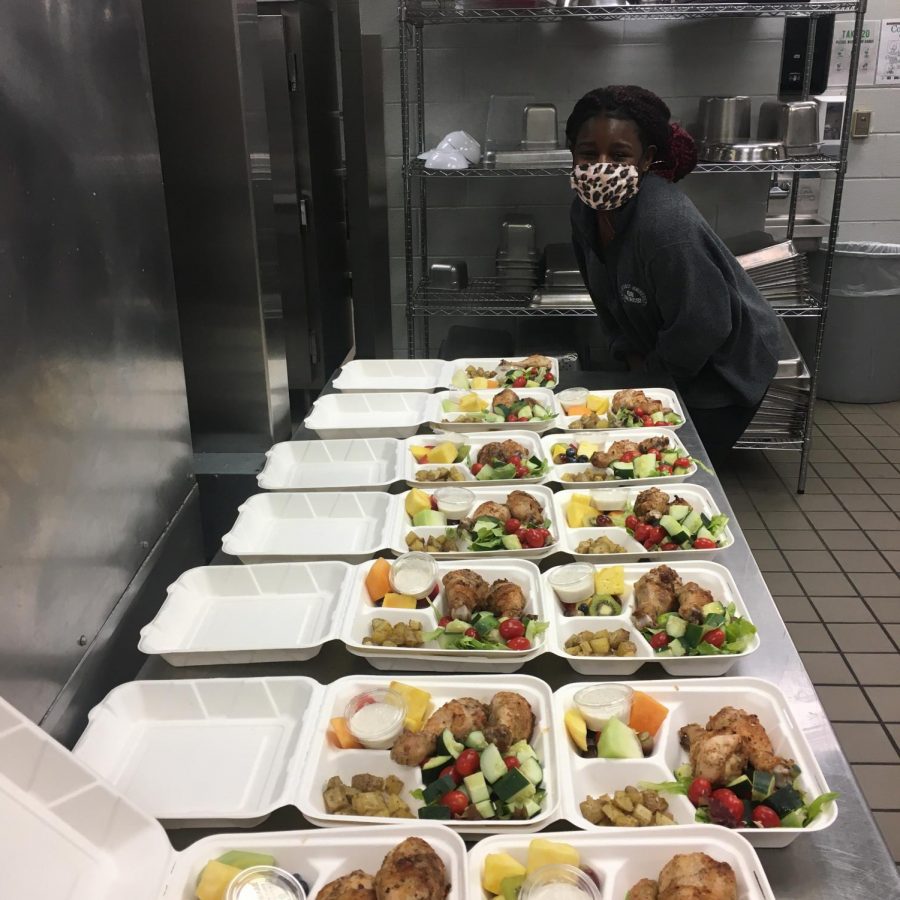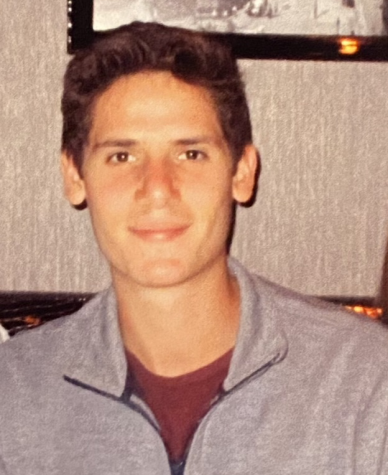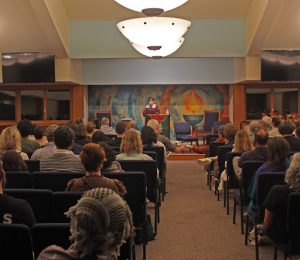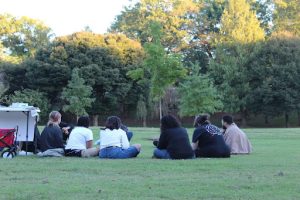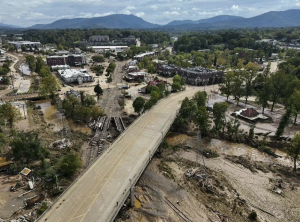Campus Kitchen tackles food insecurity
Amid high food insecurity zones in Winston-Salem, campus kitchen seeks to serve local families
Over 600 meal items are prepped by Campus Kitchen for their annual Turkeypalooza event.
November 12, 2020
Turkeypalooza — the student-run organization’s largest annual event — will kick off this Sunday and coincides with Hunger & Homelessness Awareness Week, so there’s a lot to do.
“We’re going to be cooking around 350 full Thanksgiving meals and delivering them to our community partners: Azalea Terrace, Samaritan Ministries and the Shalom Project,” said Michelle Lazaran, a senior and the co-president of Campus Kitchen. “Simultaneously, we’re also hosting events in regard to Hunger & Homelessness week as we try and raise awareness to those issues as well.”
Among these events are a food packing drive on Sunday — where over 600 items will be boxed and prepped for delivery to local residents — a friendly pumpkin painting competition on Monday, a food and solidarity event featuring individuals who have worked closely with homelessness and food insecurity, locally, on Tuesday, and a meet Campus Kitchen event on Wednesday. The festivities will conclude on Friday with the final Turkeypalooza delivery.
Campus Kitchen’s substantial efforts are part of a larger initiative to address the monumental problem of food insecurity in Winston-Salem.
As Brahm Ahmadi — a food justice advocate and social entrepreneur who has spent the better part of the last two decades working to solve the complex issue of food and nutritional insecurity on the other side of the country — explained during his keynote lecture: ‘Changing Food Systems through Access Equity & Empowerment,’ lack of access to fresh, healthy, affordable food was not distinct to the nearly 30,000 people who lived farther than one mile from a grocery store in West Oakland, Calif.
Such areas are known as ‘food deserts,’ and according to a Newsweek article published in 2014, 23 million Americans live in one. In 2015, the Food Research and Action Center declared Winston-Salem to be the No. 14 worst area in the nation for “families with children reporting food insecurity.” In total, there are 21 different food deserts in Winston-Salem and an estimated 62,5000 people who are food insecure.
The students, faculty and staff who took to Zoom on Oct. 28 to hear Ahmadi’s lecture, left with an understanding that the systemic issues which have long disenfranchised the populations Ahmadi has spent years working on behalf of are not unique to West Oakland. The economic and health disparities of those who reside in these inner-city neighborhoods, predominantly people of color, are a result of the same issues present just beyond the gates of our ‘Wake Forest bubble.’
“Inequality and racism are at the foundation of the issues that historically marginalized communities face, and those issues are really just symptoms of deeper structural problems,” Ahmadi said. “The work of environmental justice is to develop strategies to address the structural underpinnings that perpetuate and drive these issues.”
Ahmadi recognized that in order to develop strategies to begin addressing these issues, he had to talk to those who understood the struggles first-hand: community residents.
“What would often come up in our conversations was resident’s lack of access to a built environment which supports fresh food choices,” Ahmadi said.
“[Food insecurity is] something that is really close to campus, but that we don’t see on a daily basis because on-campus, it’s not a problem,” said Brian Cohen, assistant director of engagement with the Office of Sustainability.
Cohen’s correct. The issue is practically visible from campus.
U.S. Highway 52, built right through East Winston-Salem, effectively isolates the Black and Brown communities there from the city to the west, where residents in predominantly white neighborhoods have access to over 20 grocery stores.
“At the time it was built it was very much a racial divide,” Lazaran said. “Today, there are Lowe’s, Trader Joe’s and two Harris Teeters within a mile of each other. In the opposite direction, there’s pretty much nothing.”
Without access to a grocery store or often transportation to get to one, residents do most food shopping at convenience stores, where fresh, healthy, food is virtually non-existent, or from fast-food chains, such as the Bojangles on University Parkway.
“In Oakland, we found that 70% of food insecure populations are considered to be food insecure without hunger, meaning people there are not at risk of starving,” Ahmadi said. “Residents have access to some food, but it’s highly processed and not very nutritious. This results in high rates of obesity and other nutritional related conditions.”
In 2003, these findings prompted Ahmadi to open up a mobile grocery store out of an old postal delivery truck. The service allowed him to begin to sell fresh food in the community, but also opened his eyes to just how rampant food insecurity truly was.
After a knotty, 16-year journey, Ahmadi opened Community Foods Market, a 14,000 square foot, full-service grocery store, in 2019. It was the first of its kind to open in the historically marginalized neighborhood of West Oakland in over 40 years.
“That’s what [the residents] really wanted,” Ahmadi said. “Now we’re able to serve over 1,000 customers a month.”
Ahmadi also recognizes that the vast amount of time and resources necessary for the development of Community Foods Market mean his path may not be replicable in other parts of the country.
“My hope is that we can share some of what we’ve been through, both the good and the bad, as others begin their own journey to solve the needs of their communities,” Ahmadi said.
Campus Kitchen is one of several organizations embarking upon this journey here in Winston-Salem, while their efforts are heroic, there’s still a long way to go.
Students hoping to become involved with Turkeypalooza or Homelessness and Hunger Week should be on the lookout for an announcement in the coming days regarding whether or not additional volunteers will be allowed given COVID-19 restrictions. Donations are also being collected by Campus Kitchen to offset the cost of groceries and packaging for the hundreds of meals that will be delivered to local community partners.
“It was remarkable to hear how closely [Ahmadi’s] work is in Oakland mirrors what we at Campus Kitchen are trying to do to address the food desert problem in Winston,” said Julia McElhinny, a junior minoring in environmental studies and shift leader at Campus Kitchen.
“There’s nothing magical about Oakland,” added Cohen. “There’s nothing that happened there, none of his successes, that couldn’t be applied here.”


